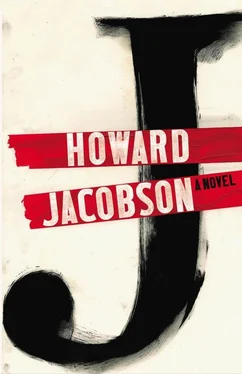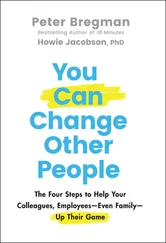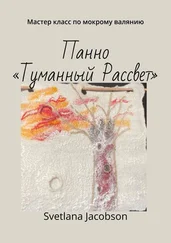So why have I decided to embrace my husband’s faith? For the beauty of it, Mummy. For the music of it, Daddy. As an expression of the loveliness of life that our grandparents suffered for us to enjoy.
Trust me, I have never been more what you brought me up to be than when I submit to what our people, in their understandably and even necessary touchy sense of separateness, have abjured for centuries — the incense, the iconography, the fragmented light of stained-glass windows, the rapture. We have been accepted and we are ready to join everybody else now. I am, anyway.
Be happy for me.
Your ever loving daughter in Christ,
Rebecca
‘I know,’ Ailinn said, when Ez told her that Rebecca was her grandmother.
‘How did you know?’
‘I’ve been expecting the letter.’
‘Is that meant to be funny?’
‘No, not at all.’
‘So what do you mean?’
Ailinn made a ‘leave it’ gesture with her hand, wafting whatever she meant away. Wafting it out of the room, wafting it out into Paradise Valley.
‘I can tell she was my grandmother, that’s all. I can read myself in her. Was there a reconciliation?’
‘I’d like you to read the final letter,’ Ez said.
Ailinn was reluctant. She couldn’t have said why. Maybe it was the word ‘final’. But she read it.
May 202-
My Darling Parents,
I am very alarmed by what I have heard is happening where you are. Please write and tell me you are all right. That’s all I ask.
Yours in fear,
R
‘Now the envelope,’ Ez said.
It was stamped, in large purple letters,
RECIPIENT UNKNOWN AT THIS ADDRESS
RETURN TO SENDER
*The Allegory of the Frog
A frog was thrown into a pan of boiling water.
‘What do you take me for?’ the frog said, jumping smartly out. ‘Some kind of a shlemiel?’
The following day the frog was lowered gently, even lovingly, into a pan of lukewarm water. As the temperature was increased, a degree at a time, the frog luxuriated, floating lethargically on his back with his eyes closed, imagining himself at an exclusive spa.
‘This is the life,’ the frog said.
Relaxed in every joint, blissfully unaware, the frog allowed himself to be boiled to death.
i
‘HOW DO YOU take it?’
The policeman Eugene Gutkind pouring morning tea for the historian Densdell Kroplik.
‘Like a man.’
‘And that would be how?’
‘Five sugars and no milk. Is this a cat or an albino dog?’
Densdell Kroplik stroking the ball of bad-breathed icing sugar rubbing up against his leg.
‘Don’t touch it. You’ll never get the stuff off your fingers.’
‘Like guilt,’ Kroplik laughed, sitting forward on the couch, his legs apart, something heavy between them.
A bolt of disgust went through Gutkind’s body. Did he really want that sitting on his furniture?
He had invited Kroplik round to his end-of-terrace house in St Eber to show him his great-grandfather’s collection of Wagner memorabilia. The rarely played composer had brought the two men together, the decline in the popularity of his music confirming their shared conviction that they were living in unpropitious times. Each believed in conspiracies, though not necessarily the same conspiracies.
‘Isn’t this against the law?’ Kroplik asked, leafing through the photographs and playbills and scraps of unauthenticated manuscript that Gutkind had brought out of filing boxes wrapped in old newsprint.
Gutkind wondered how many more jokes on the theme of legality his co-conspiracy theorist intended to make. ‘The law is not so small-minded,’ he said. ‘It winks at a reasonable number of personal items. It’s only when they turn out to be an archive that there’s trouble.’
Since Kroplik must have had an archive of some size in order to compile even his Brief History , this was meant as a friendly shot across his bows.
‘So how are you getting on finding the killer of the Whore of Ludgvennok?’ Kroplik asked, that being the context in which the name of Richard Wagner had first come up between them. Just a question. He could have been asking whether the policeman had seen any good films lately.
Gutkind put his fingers together like a preacher and lowered his head.
‘I presume you’re talking about Lowenna Morgenstern?’
Kroplik snorted. ‘How many whores do you know?’
‘How many whores are there?’
‘In these parts there’s nobbut whores, Detective Inspector.’
‘Then what makes this one different?’
‘She’s dead.’
Gutkind parted his fingers. There was no denying that Lowenna Morgenstern was dead. But was she a whore? ‘Are you telling me,’ he asked, insinuating a note of fine scruple, ‘that Lowenna Morgenstern sold her kisses?’
‘I’m telling you nothing. I’m asking. You found anyone yet? Got a suspect?’
‘The process proceeds,’ Gutkind said, rejoining his fingers.
‘Maybe I’ll have more sugar,’ Kroplik proceeded in another direction, helping himself to a sixth cube. ‘Would your albino dog like one or does he just lick himself when he’s in need of something sweet?’
He was disappointed that the detective inspector had stopped asking him who he thought might have murdered Lowenna Morgenstern, Lowenna Morgenstern’s lover and latterly Lowenna Morgenstern’s husband. He felt it undermined both his authority and his judgement.
Gutkind passed him a programme for a performance of Götterdämmerung at Bayreuth. It had some elegant faded handwriting on the back, a set of initials together with a phone number. Gutkind had some time ago concluded that they were the initials of the woman his great-grandfather had loved to hopeless distraction, and that the phone number was hers. They must have met in the Festspielhaus, perhaps at the bar, or maybe they had even found themselves sitting next to each other, perhaps so transported by the divine music that they rubbed knees though they were each in the company of other lovers. That the woman should have gone to Bayreuth in the first place puzzled Gutkind, all things considered, but the enigma of it made her all the more fascinating, as Clarence Worthing himself must have felt. I too would have fallen for her, Gutkind thought, conjuring the woman’s exotic appearance from the archive of his fancy. I too would have been entrapped.
The programme itself was illustrated with several artists’ interpretations of the world ablaze. These could have doubled for the state of his great-grandfather’s heart. ‘I like thinking about the end of the world,’ he said. ‘You?’
Densdell Kroplik scratched his face. ‘We’ve lived through the end of the world,’ he answered. ‘This is the aftermath. This is the post-apocalypse.’
Gutkind looked out of his leaded window at the pyramids of grey clay. The land spewing up its innards. The inside of his unloved, unlived-in terrace house no better. Apart from the dusting of clay, there was something green and sticky over everything, as though a bag of spinach had exploded in the microwave, blowing off the door and paintballing every surface — the table, the walls, the ceiling, even the photograph of Gutkind and his wife on their wedding day, she (her doing, not his) with her head scissored off, Gutkind and his headless bride. Then again, it could just have been mould. Gutkind looked between his fingers. Yes, mould. ‘You could be right,’ he said.
‘I am right. It’s the twilight of the gods.’
‘Wagner’s gods? Here? In St Eber?’
Читать дальше












